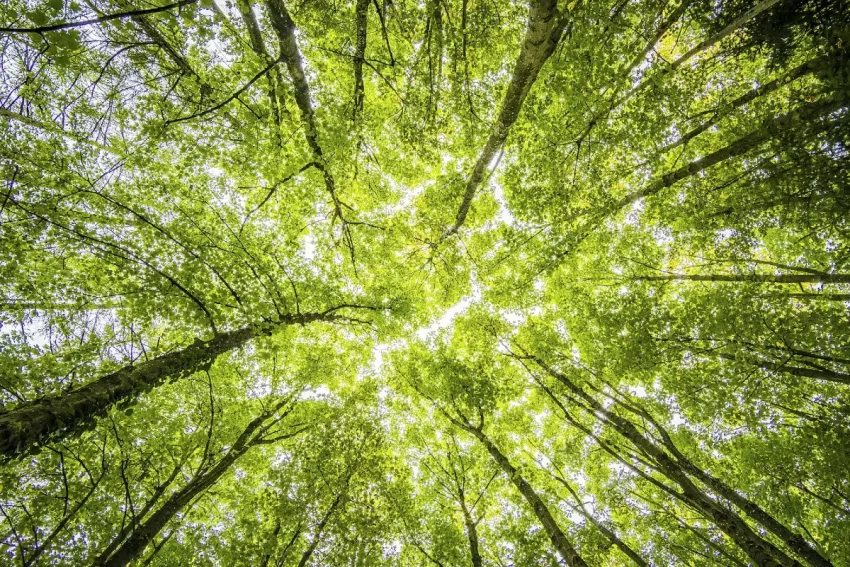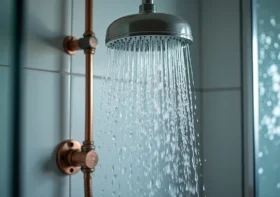You’re Not Tired…You Just Need to Live Near Trees Again

It’s not burnout. Not exactly. You sleep, technically. You don’t hate your job. You even exercise. But something feels drained. Not in a crisis way, more like a slow leak. The kind you don’t notice until you try to focus and realize your brain sounds like static.
Urban fatigue isn’t a medical diagnosis, but it should be. Because we’ve built lives on top of concrete and called them aspirational. And now your nervous system is revolting.
Contents
- 1 Cities Trained You to Normalize Noise
- 2 Nature Isn’t a Weekend Privilege. It’s Preventative Care.
- 3 Remote Work Was Supposed to Change Everything. Did It?
- 4 Yes, People Are Actually Moving and No, It’s Not Just a Trend
- 5 Your Nervous System Can’t Be Gaslit Forever
- 6 The Myth of Hustle, Powered by Concrete
- 7 Silence Is Not the Same as Emptiness
- 8 Trees Don’t Just Look Pretty. They Rewrite Your Biology.
- 9 The Architecture of Exhaustion
- 10 Your Brain Wasn’t Built for Infinite Scroll, IRL
- 11 Escape Shouldn’t Be a Hobby
- 12 Real Estate as a Health Investment
- 13 Stillness Is a Resource. Most Cities Are Bankrupt.
Cities Trained You to Normalize Noise
There’s a specific kind of exhaustion that comes from living in a city long enough. Sirens at 2 a.m. Honking over brunch. Construction that never ends but never seems to build anything. You learn to tune it out. But your body doesn’t. Your cortisol doesn’t.
A 2021 study in Environmental Health Perspectives found that chronic noise exposure (especially in high-density urban zones) is linked to poor sleep quality, impaired cognitive function, and increased cardiovascular risk. Not because noise is inherently evil, but because the city never stops.
You weren’t built for this. Not evolutionarily. Not emotionally.
Nature Isn’t a Weekend Privilege. It’s Preventative Care.
Green space does more than look good on a desktop background. It lowers blood pressure. Reduces anxiety. Boosts short-term memory and creativity.
A University of Michigan–led study, published in Frontiers in Psychology, found that spending just 20 to 30 minutes outside (walking or sitting in a natural setting) can significantly reduce stress hormone levels, with cortisol drops of over 20% per hour being most efficient within that window.
Nature can’t be a vacation from your real life. It needs to be part of your real life.
Remote Work Was Supposed to Change Everything. Did It?
The fantasy was simple: ditch the commute, work in sweats, finally have time to think. But for many, remote work just became another way to sit inside all day and scroll Zillow while wondering why your apartment still feels like a shoebox with Wi-Fi.
This isn’t about quitting your job or going off-grid. It’s about giving yourself a better base. Somewhere with space. With silence that doesn’t mean danger. With water that isn’t bottled and trees that weren’t photoshopped in.
Yes, People Are Actually Moving and No, It’s Not Just a Trend
Call it the post-pandemic migration. Or call it common sense. More buyers are looking outside the GTA, and Muskoka Real Estate is no longer just for summer cottages or retirees. It’s increasingly where families, professionals, and first-time buyers are investing in actual breathing room. Property that pays off in both value and sanity.
Homes that let you hear birds in the morning instead of your upstairs neighbour’s microwave beeping.
Your Nervous System Can’t Be Gaslit Forever
You can tell yourself you’re fine. You can invest in blackout curtains, noise-canceling headphones, and lavender diffusers. But your nervous system doesn’t negotiate. It only registers input. And when that input is relentless—sirens, ads, alerts, traffic—it stops differentiating between annoyance and danger. That’s why your “rest” never actually feels like rest. Because your baseline has been hijacked.
The Myth of Hustle, Powered by Concrete
Cities sell productivity like it’s a personality trait. Grind culture, networking breakfasts, the fetishization of being “booked and busy.” But what fuels this system isn’t ambition. It’s depletion. You keep buying $8 lattes and boutique fitness memberships, not because they energize you, but because you’re running on fumes. You think you’re optimizing your schedule. Really, you’re patching leaks in an environment designed to drain you.
Silence Is Not the Same as Emptiness
When you finally leave the city for a weekend, the silence feels disorienting. Like a missing soundtrack. But that’s just withdrawal. Stillness doesn’t mean nothingness—it’s an environment where your body isn’t under siege. In natural quiet, your thoughts stop sprinting. Your pulse slows without you trying. The absence of noise isn’t a void; it’s the reset button you didn’t know you needed.
Trees Don’t Just Look Pretty. They Rewrite Your Biology.
This isn’t poetry—it’s measurable. Forest environments release phytoncides, airborne compounds plants emit as protection. Humans who inhale them show improved immune function, lower stress markers, even higher natural killer cell activity.
In Japan, they call it shinrin-yoku, or forest bathing, and it’s prescribed like medicine. Meanwhile, most North Americans treat “time in nature” as a luxury outing. No wonder you feel perpetually unwell.
The Architecture of Exhaustion
Cities are designed for efficiency, not humanity. Grid systems. High-rises. Transit maps optimized for speed, not sanity. The irony: the more streamlined the infrastructure, the more fractured the person inside it. You can move a million people through a subway system every morning, but you can’t move their nervous systems out of survival mode. The city doesn’t collapse—you do.
Your Brain Wasn’t Built for Infinite Scroll, IRL
The city is basically a live-action feed. Billboards. Push notifications. Crowded sidewalks. Storefronts screaming at you in twelve fonts. You scroll without scrolling. And just like with your phone, your brain never finishes the loop. No closure. Just endless inputs competing for attention until your focus splinters. That’s why even after “resting,” you wake up already tired.
Escape Shouldn’t Be a Hobby
The current model of city living trains you to earn your own escape. Weekend trips, Airbnbs, overpriced “glamping.” But the problem with escape is that you always have to return. The cure becomes the tease.
What if instead, the environment you lived in wasn’t something you had to flee from? What if your daily life didn’t require recovery? That’s not fantasy. It’s just a different real estate listing.
Real Estate as a Health Investment
We talk about property as equity, location, school zones, resale value. But the most overlooked metric is how it treats your body. Does your home help you recover? Or does it slowly break you down?
Buyers are starting to calculate more than square footage. They’re asking about walkable trails, lake access, canopy coverage. Because a mortgage is a commitment—but so is your nervous system.
Stillness Is a Resource. Most Cities Are Bankrupt.
What if your life didn’t need buffering time? What if stillness wasn’t something you scheduled for a long weekend, but something you woke up inside of every day?
This isn’t a lifestyle article trying to sell you serenity. It’s a reminder: your exhaustion might be location-based. Your burnout might be environmental. And your next move doesn’t need to be out of desperation…it can be strategic.



